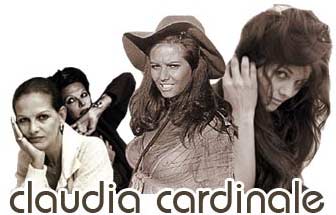Born in Tunisia in 1938, Claudia Cardinale first attracted attention in 1957 after winning the 'Most Beautiful Girl in Tunisia' contest. Her prize was a trip to the Venice Film Festival, inspiring her to pursue a career in acting.
After studying at Rome's Centro Sperimentale film school, she hade her screen debut in 1958 in Mario Monicelli's classic caper comedy i soliti ignoti, followed a year later by Pietro Germi's Un maledetto imbroglio. Emerging in the wake of Sophia Loren's international success, Claudia Cardinale was originally touted as Italy's answer to Brigitte Bardot; while never attaining a measure of global stardom comparable to either performer, she nevertheless proved herself a highly capable actress, working with many of the most renowned film-makers in world cinema. Under the guidance of producer Franco Cristaldi, Cardinale emerged as a major sex symbol; however, she also continued to appear with highly regarded film-makers, including Abel Gance, Luchino Visconti, and Philippe de Broca. In 1963, Cardinale received her widest exposure up to then, playing herself - the object of star Marcello Mastroianni's fantasies - in Federico Fellini's masterpiece 81/2. That same year, she also appeared in Visconti's epic Il gattopardo (The Leopard).
Their combined success piqued Hollywood's interest, and in 1964 she co-starred on her first American production, Henry Hathaway's Circus World. She also appeared opposite Peter Sellers in Blake Edwards' The Pink Panther.

